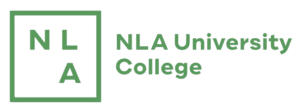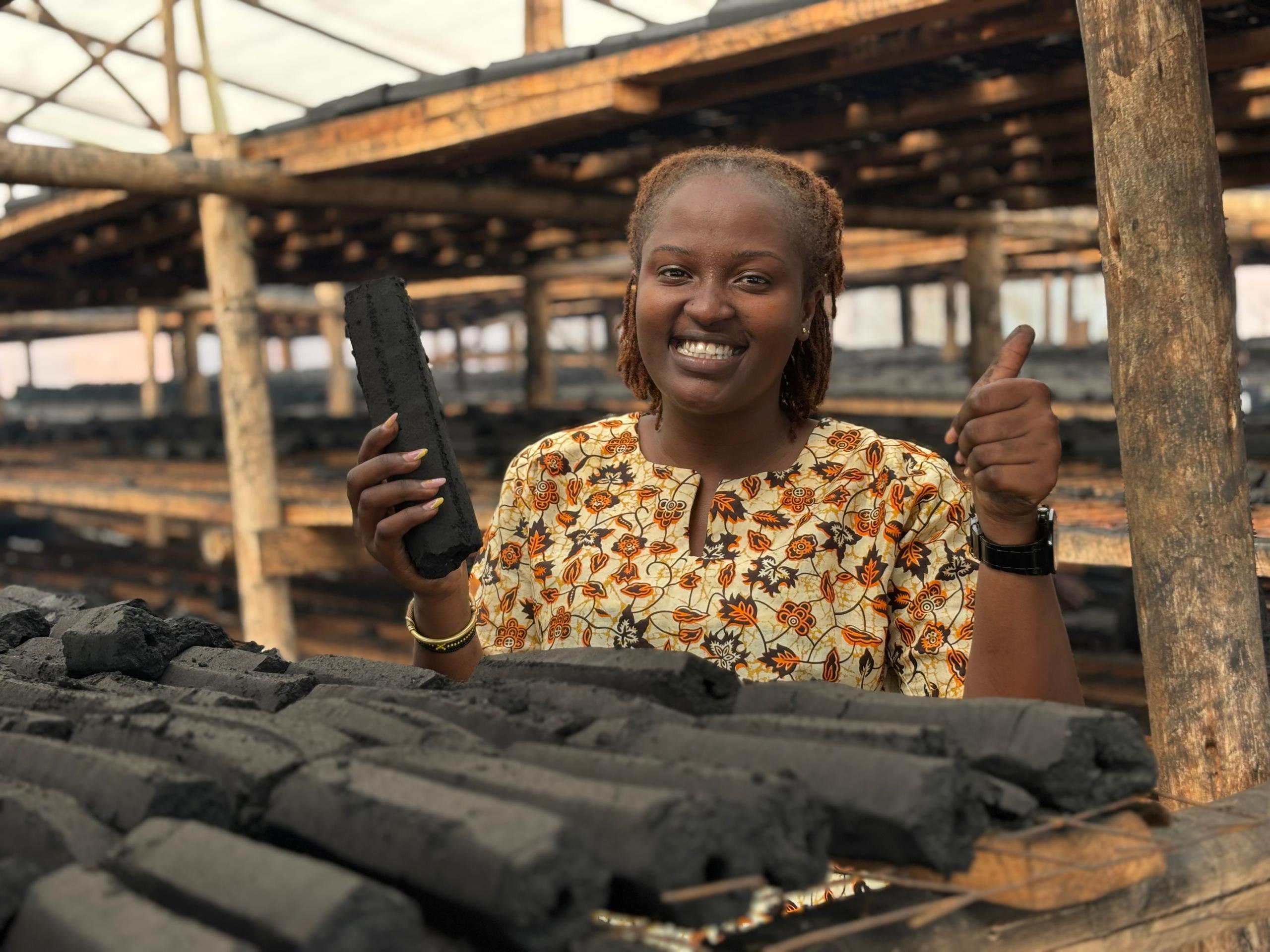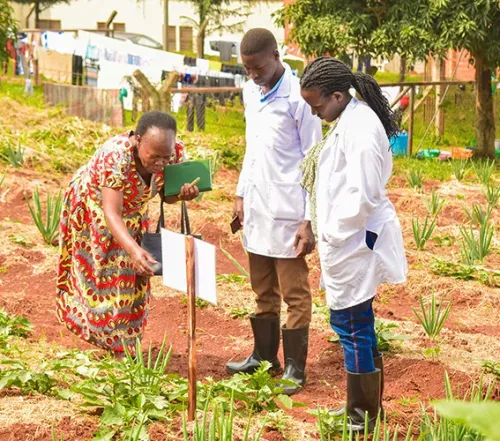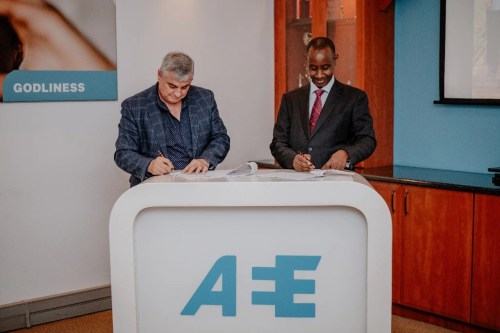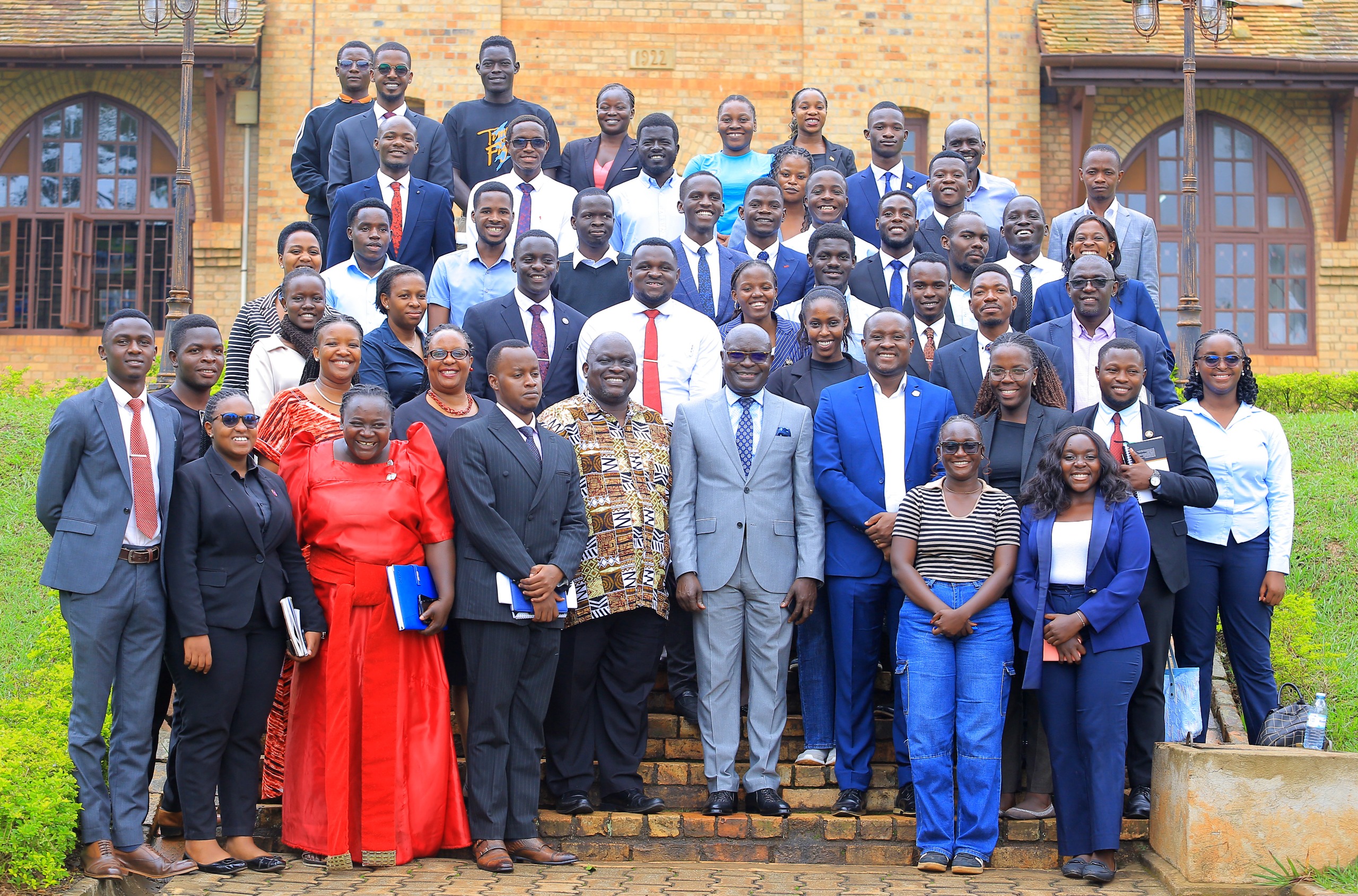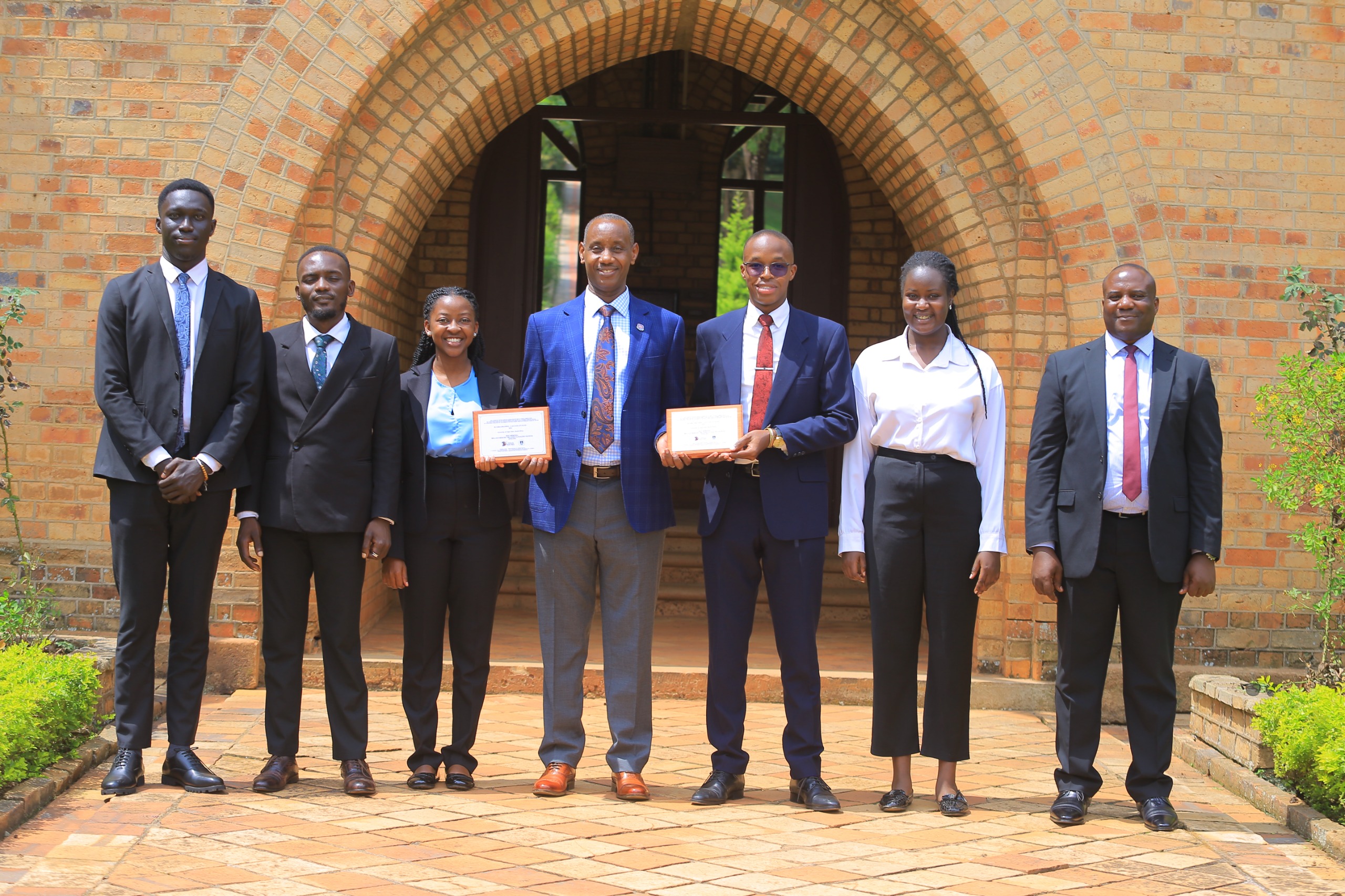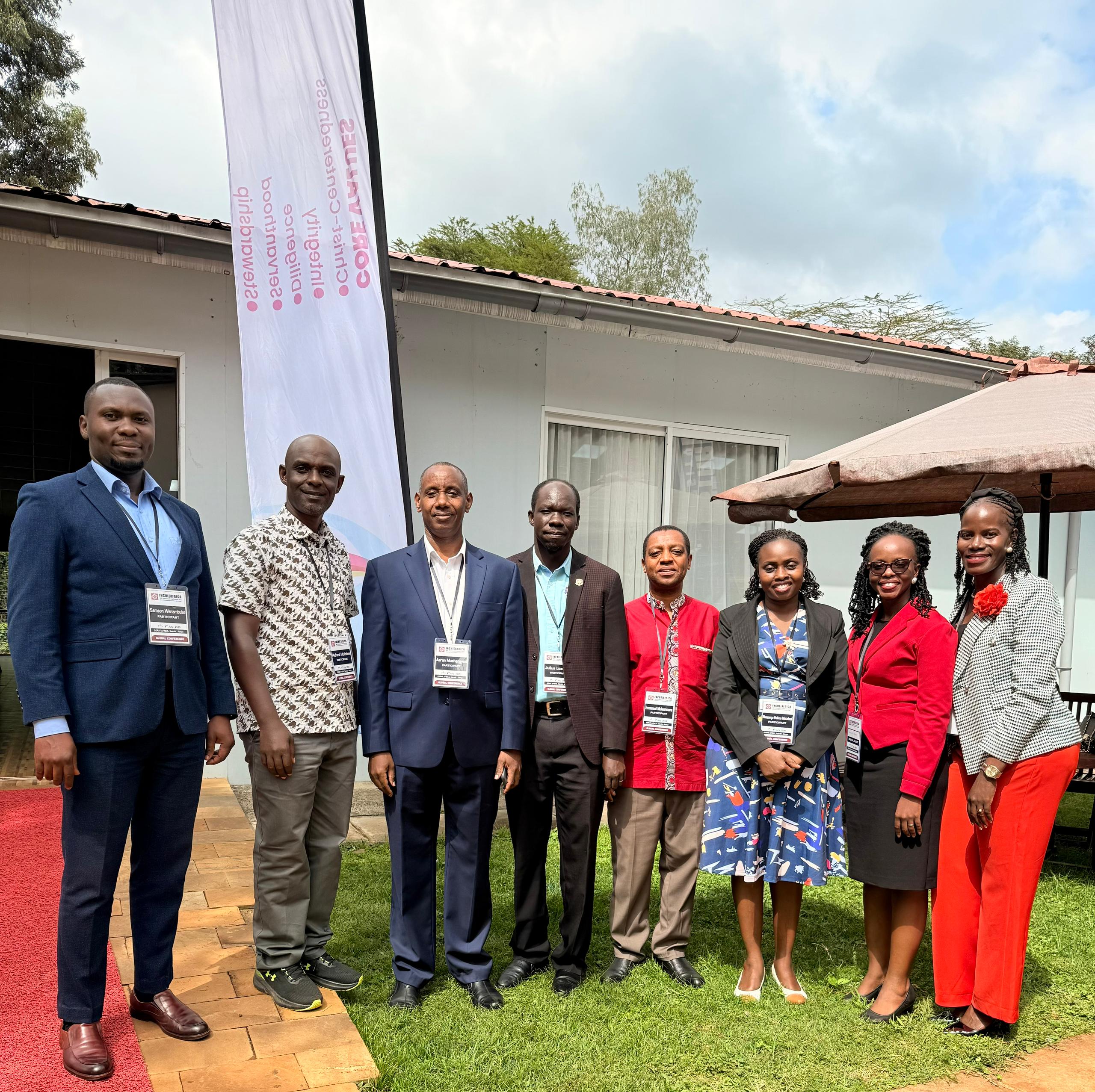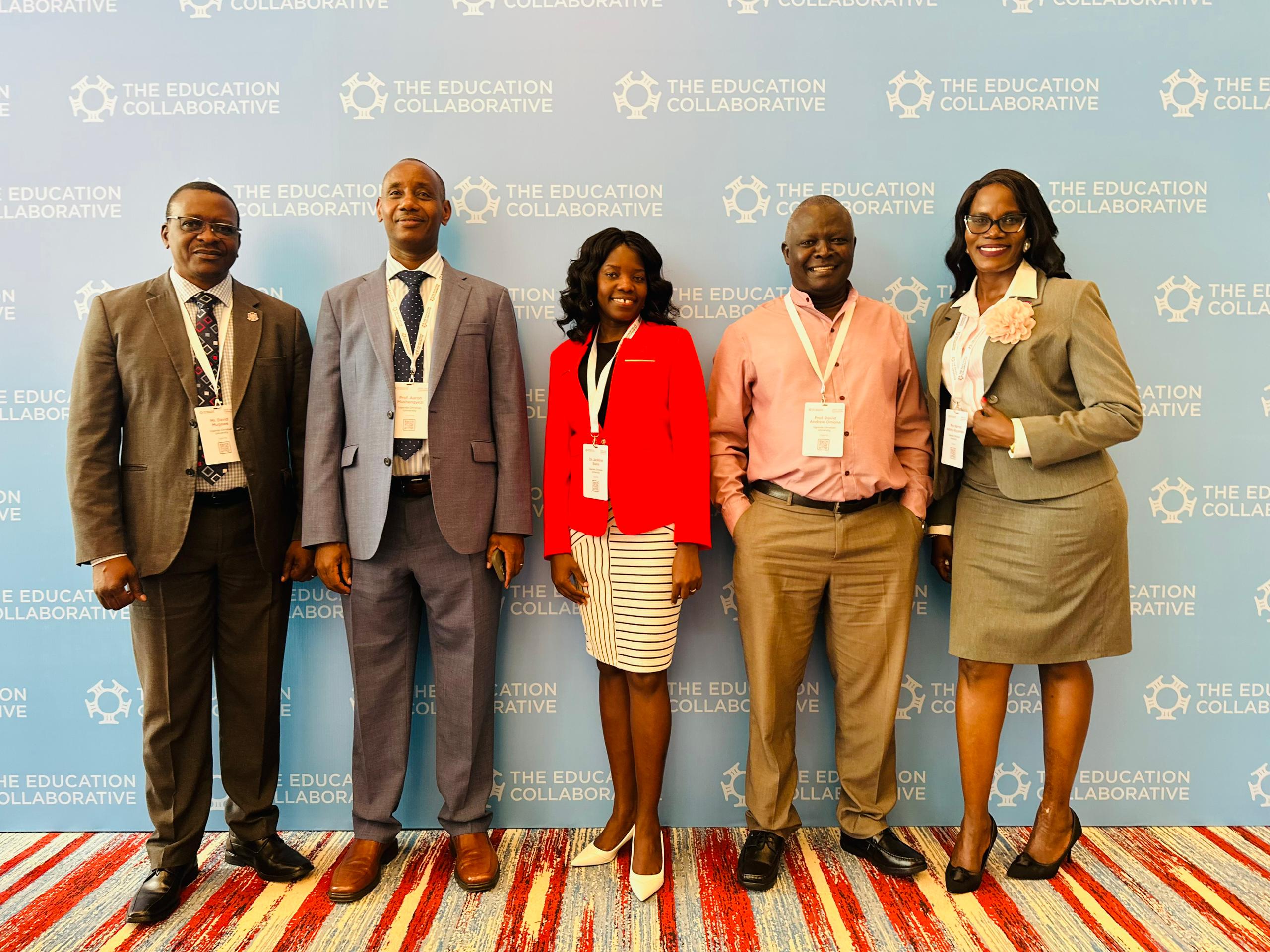Call for Applications
We are honoured that you are considering Uganda Christian University (UCU) for your higher Education. Our admissions process is designed to be straight forward and accessible, ensuring that all prospective students have the opportunity to join our vibrant community.
International Students
A warm welcome to Uganda Christian University (UCU)! We are thrilled to have you join our diverse and dynamic community. Your presence enriches our University, bringing a wealth of cultural perspective and experiences that enhances our collective learning environment.
Academics
Uganda Christian University (UCU) offers a diverse range of academic programs across multiple faculties and schools, fostering excellence in education and holistic development. The university is structured into eight schools and three faculties, each specializing in different disciplines
Prospective Students
We are delighted to welcome you to Uganda Christian University (UCU), a place where academic excellence meets holistic development in a vibrant environment. Choosing the right university is a pivotal step in your academic journey, and we are honoured that you are considering UCU.
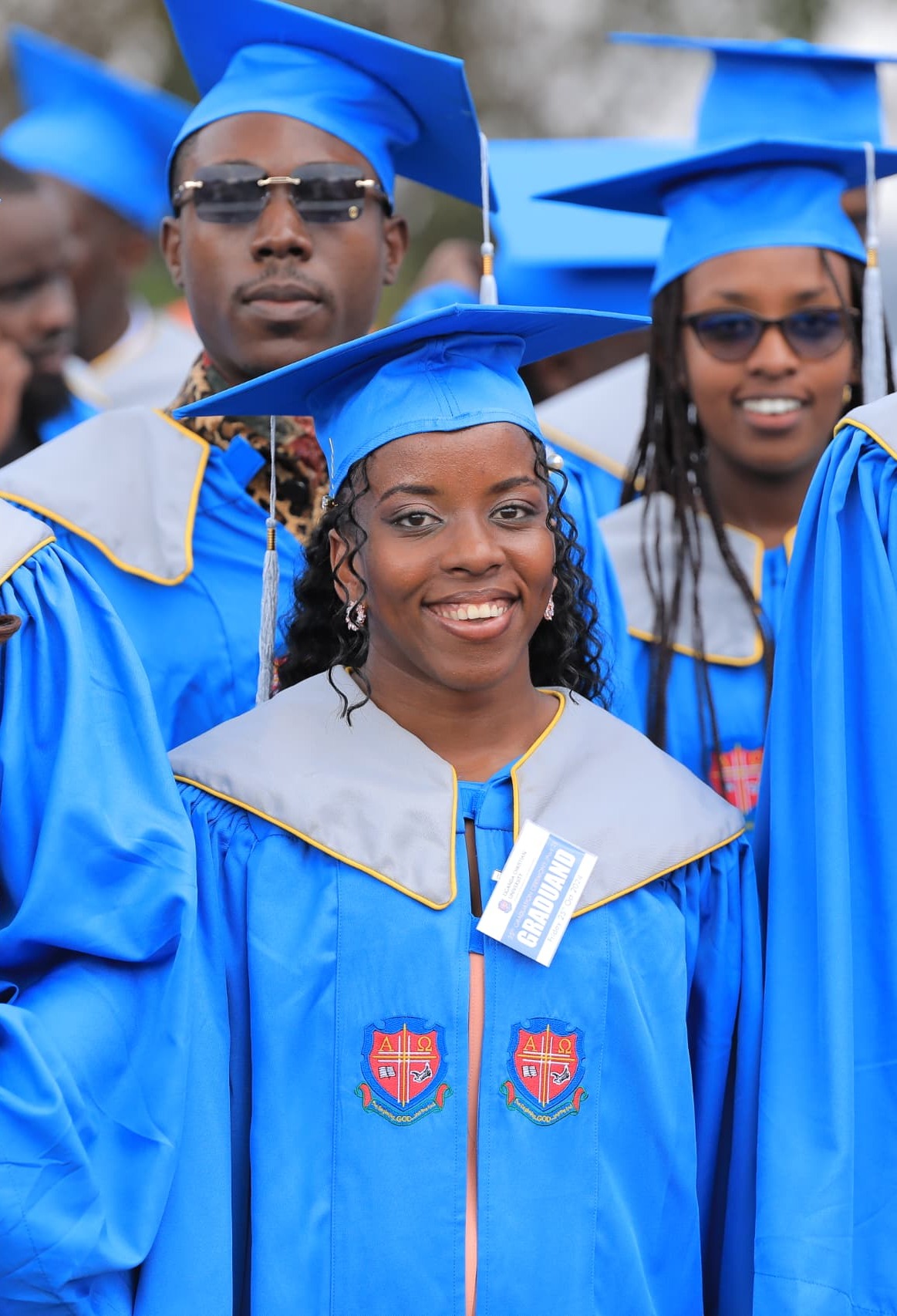
Why Uganda Christian University
Uganda Christian University (UCU) is an authentic Christian institution established by the Church of Uganda in 1997 in response to a call for quality university education with a Christian perspective.
Graduates
To the Journey Ahead
Gain Valuable Knowledge & Experience
Join UCU
We don’t just give students an education and experiences that set them up for success in a career, we help them succeed in their career.
E-learning
UCU is a leader in online distance learning (ODeL). We have been consistently teaching throughout this COVID time, whether fully online or in a blended capacity
Campus Tours
The university offers a wide range of undergraduate and graduate programs across various disciplines, including business, computer science, education, law, medicine, and theology.
Join UCU
Hello and welcome to Uganda Christian University! We are thrilled that you are considering joining our academic community.
Our Research
As Uganda Christian University, we are committed to strengthening our position as one of the world’s leading
We Are Open For Opportunities!
A place where excellence in education meets boundless opportunities for personal growth. We pride ourselves on our academic programs, that are designed to equip students with Knowledge, skills and ethical grounding necessary to excel in their chosen fields.
Schools & Faculties
Choosing the right major is a pretty big deal. That’s why it helps to have choices. And with more than 115+ undergraduate majors to choose from across 11 schools and Faculties, you’re bound to find something that inspires you.
Explore Our Research
Food waste supply and behavior towards its alternative uses in Kampala City, Uganda
Food waste supply and behavior towards its alternative uses in Kampala City, Uganda
UCU researchers seek to multiply bamboo production for more benefits
UCU researchers seek to multiply bamboo production for more benefits By Pauline LubaMicropropagation refers
UCU to Roll Out Trainer of Trainers’ Programme for ACE curriculum
UCU to Roll Out Trainer of Trainers’ Programme for ACE curriculum We are
Spread over 5 regions
We Are One Of The Largest Universities in Uganda
With 6 locations across Uganda, Uganda Christian University provides you access to fully accredited, flexible degree programmes without the need to commute to the main campus in Mukono.

Testimonials
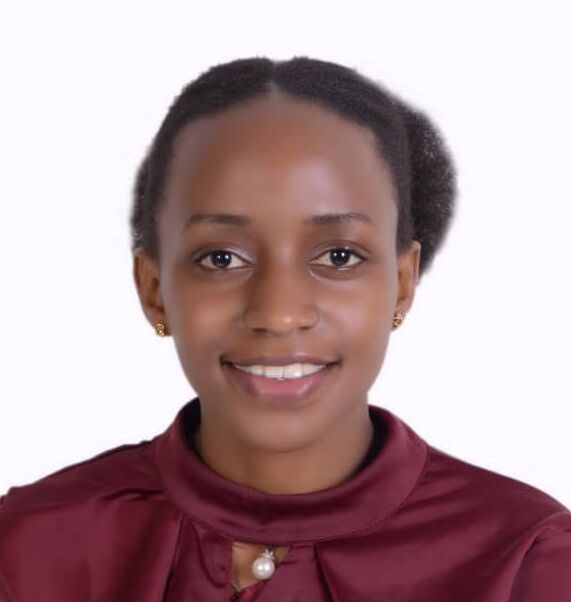
IT Student
Uganda Christian University is a strong and trusted place for learning. It offers students a peaceful and modern environment that supports learning, especially for those studying IT. While students work hard to grow their skills, the lecturers and staff also stay dedicated to helping us understand the changing world of information technology and turn our ideas into reality.

Law Student
Uganda Christian University is a beacon of educational excellence. With a serene and conducive learning environment, UCU nurtures students' dreams and aspirations. Our dedicated lecturers and staff are unwavering in their commitment to guiding students on their academic journey, ensuring they reach their full potential.

Law Student
Uganda Christian University, a pillar in the field of education, provides a serene atmosphere of intellectual stimulation for all Law students to cultivate their passion for justice and critical thinking. The unwavering support from our dedicated lecturers and staff ensures that each student is guided through the demanding study of Law to reach our fullest potential.

IT Student
Uganda Christian University is a strong and trusted place for learning. It offers students a peaceful and modern environment that supports learning, especially for those studying IT. While students work hard to grow their skills, the lecturers and staff also stay dedicated to helping us understand the changing world of information technology and turn our ideas into reality.

Law Student
Uganda Christian University is a beacon of educational excellence. With a serene and conducive learning environment, UCU nurtures students' dreams and aspirations. Our dedicated lecturers and staff are unwavering in their commitment to guiding students on their academic journey, ensuring they reach their full potential.

Law Student
Uganda Christian University, a pillar in the field of education, provides a serene atmosphere of intellectual stimulation for all Law students to cultivate their passion for justice and critical thinking. The unwavering support from our dedicated lecturers and staff ensures that each student is guided through the demanding study of Law to reach our fullest potential.

IT Student
Uganda Christian University is a strong and trusted place for learning. It offers students a peaceful and modern environment that supports learning, especially for those studying IT. While students work hard to grow their skills, the lecturers and staff also stay dedicated to helping us understand the changing world of information technology and turn our ideas into reality.

Law Student
Uganda Christian University is a beacon of educational excellence. With a serene and conducive learning environment, UCU nurtures students' dreams and aspirations. Our dedicated lecturers and staff are unwavering in their commitment to guiding students on their academic journey, ensuring they reach their full potential.

Law Student
Uganda Christian University, a pillar in the field of education, provides a serene atmosphere of intellectual stimulation for all Law students to cultivate their passion for justice and critical thinking. The unwavering support from our dedicated lecturers and staff ensures that each student is guided through the demanding study of Law to reach our fullest potential.

IT Student
Uganda Christian University is a strong and trusted place for learning. It offers students a peaceful and modern environment that supports learning, especially for those studying IT. While students work hard to grow their skills, the lecturers and staff also stay dedicated to helping us understand the changing world of information technology and turn our ideas into reality.

Law Student
Uganda Christian University is a beacon of educational excellence. With a serene and conducive learning environment, UCU nurtures students' dreams and aspirations. Our dedicated lecturers and staff are unwavering in their commitment to guiding students on their academic journey, ensuring they reach their full potential.
Upcoming Events
26th GRADUATION CEREMONY 2025 (PART ONE)
This is the first of our three annual graduations at Uganda Christian University.
The 26th Graduation Ceremony (Part One) took place at the UCU Main Campus in Mukono. Join us as we celebrate the achievements of our graduates as they embark on their next journey.
- 8:00 AM to 1:00 PM
- July 04, 2025
- 8:00 - 1:00 PM
- UCU Main Campus Mukono



Office of the Vice Chancellor
Assoc. Prof. Aaron Mushengyezi is the third and current Vice Chancellor of Uganda Christian University.
He holds a PhD from the University of Connecticut, a Masters of Arts from Makerere university and Bachelor’s Degree (with First Class Honours).
University Senate
The University Senate, chaired by the Vice Chancellor, serves as the principal deliberative and academic body of the University. Its membership comprises the following;
- 1. Vice Chancellor
- 2. Deputy Vice Chancellors
- 3. College Principals and Directors
- 4. Deans and Heads of Department
- 5. Managers of Departments
- 6. Students’ Guild President
Apply for Admission
Applications for September Intake 2025 are now open
We do not Just give our Students education and experiences that set them up for success in a career; we help them succeed in their careers.
UCU Vice Chancellor, Prof. Aaron Mushengyezi Message to all UCU Stake Holders
Latest News & Articles
Our Partners


